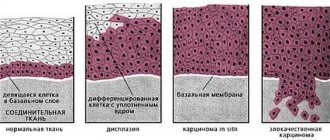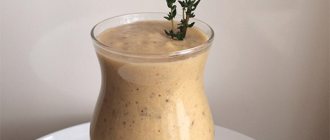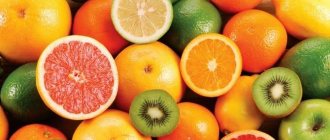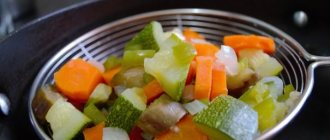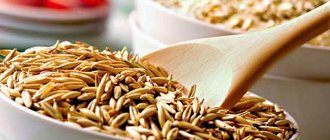Each of us understands the importance of what and how much we eat. However, we very often neglect the fact that we do not follow proper nutrition for the stomach. A person thinks about it only when pain occurs. Meanwhile, this organ of the digestive system is very delicate, requiring careful treatment. What can we do to keep our stomach from getting sick and to last as long as possible?
The main organ of digestion has a lot of daily work, and the less a person thinks about it, the more difficult its work. Following the eight simple rules described below will help you avoid many diseases of the gastrointestinal tract - dyspepsia, peptic ulcers, high or low acidity, gastritis, and so on, and will also maintain a functional and healthy stomach for many years.
Overeating is dangerous to health
What foods are good to eat?
Nutritionists believe that the foods most necessary for the stomach contain fiber (for example, oatmeal, bran, legumes, cereals). The digestive system takes a long time to digest foods high in fiber, which is beneficial for its functioning.
Fruits contain plant fiber. A large amount of this substance is found in the peel of fruits (for example, apples). One of the “leaders” in fiber content are bananas. If you do not have regular stomach pain, ulcers or gastritis, you should eat fruits raw or make them into light salads dressed with vegetable oil.
Nutritionists say that a sufficient amount of liquid is necessary for the normal functioning of the stomach and body. Try to drink 1.5-2 liters of water per day, drink weak tea and fresh juices more often. This will help avoid digestive disorders and stomach pain.
Fatty, heavy foods are undesirable for the stomach (in addition, their consumption contributes to constipation and increased gas formation). Therefore, it is worth choosing dairy products with a low percentage of fat, replacing the usual pork with chicken, and butter with vegetable oil.
Types of meat and fish
Meat and fish are essential elements of human nutrition. They supply the body with useful protein, vitamins, and minerals. The fat content of foods determines how quickly they are processed by the body.
Depending on the fat content of the meat, it may take from 2 to 4 hours to process it. So lean beef will be digested in 1-2 hours, and pork in 2-4 hours. The method of preparing dishes also matters.
Thus, the digestibility of meat should be associated with the following parameters:
- fat content;
- rigidity;
- cooking method.
Turkey has the lowest fat content, but is inferior to chicken in terms of toughness. The most easily digestible dish is steamed chicken.
Fish is easily processed by the body. Almost completely absorbed by humans.
Depending on the amount of fat, all types of fish can be divided into groups:
- low-fat fish, for example, cod, pollock, pike, flounder;
- moderate-fat: pink salmon, chum salmon, trout, salmon;
- fatty varieties.
Time for the body to process certain easily digestible types of fish:
| Name | processing time, hour |
| pike | 3,1 |
| acne | 3,1 |
| tuna | 3,1 |
| horse mackerel | 3,1 |
| perch | 3,1 |
| bream | 3,1 |
| pink salmon | 3,1 |
| pollock | 3,1 |
| herring | 4 |
Based on these data, you can select those varieties of fish that are most quickly processed by the human body.
Foods that are good for the stomach
For people suffering from regular constipation, foods that weaken the intestines are necessary. These include:
- vegetable oils (in order for vegetable oils to weaken, they must be consumed in their pure form or seasoned with them in salads);
- weaken fermented milk products (kefir, fermented baked milk, yogurt);
- Dried fruits effectively weaken, they are good because they can be consumed in unlimited quantities by children. To improve the effect, dried fruits should be poured with boiling water.
- coffee does not have as strong an effect as the products described above, but it also stimulates intestinal activity and weakens;
- To treat constipation, you can add lemon juice to water. It also weakens and improves bile production;
- Sunflower seeds and nuts have a laxative effect; they weaken the intestines due to their high magnesium content;
- Wheat cereal weakens (especially if you add a little vegetable oil to it);
- among vegetables, beets, lettuce, pumpkin, greens, celery, white cabbage, and carrots are the most weak.
The following products secure the chair:
- green bananas strengthen, reducing the level of fluid in the intestines;
- strengthen dishes with a high starch content (white rice, semolina, mashed potatoes);
- although applesauce is strengthening, raw apples and pears do not have a similar effect, moreover, pear is a record holder for pectin content, like persimmons (but persimmons are contraindicated for people with gastritis and ulcers);
- Dried blueberries strengthen; blueberry jam and blueberry-infused tea have the same effect;
- the following drinks strengthen the stool: strong tea, coffee, cocoa, natural red wines;
- few people know that stale kefir (three days old) also strengthens the stool;
- The chair is strengthened by fatty foods, salted fish, cheese, and sausages.
To prevent constipation, you should try to limit the amount of the above-mentioned dishes in your diet. By eating foods that are good for your stomach, you can avoid regular constipation, stomach pain and other digestive problems.
Food that's good for you
Healthy food for the stomach can become harmful if a person has gastritis or ulcerative lesions. Therefore, the question of usefulness should be approached carefully, based on individual characteristics.
For example, raw vegetables and fruits are rich in fiber. This is undoubtedly beneficial for the digestive tract, since fiber allows you to saturate the body with vitamin and mineral components and remove waste and toxins. But with gastritis, such products will have to be abandoned, as they injure the mucous membrane and lead to a re-exacerbation of inflammation.
First, you should determine a list of products that are beneficial for digestion in general.
This list includes:
- vegetable oils in the form of flaxseed, olive and sesame. They consist of tocopherol and omega-3 fatty acids. They make a great salad dressing;
- cereals. This product contains a large number of useful components. It also contains soluble and insoluble fiber;
- fermented milk products. Such food products stabilize intestinal function, since they contain beneficial bacteria in the form of bifidobacteria and lactobacilli. Kefir, cottage cheese and natural yogurt are considered not only healthy, but also satisfying dishes that are quickly and easily absorbed by the stomach;
- bananas. After consuming it, a feeling of satiety appears, energy is added, and the microflora is maintained at the desired level;
- berries. Considered a good alternative to fruit. They are easier to digest. They fill the digestive tract with antioxidants. Contains many vitamins and minerals;
- vegetables. They are more easily accepted by the gastric cavity compared to fruits. But they do not contain the same amount of vitamins and minerals.
Another important food product is purified drinking water. It is needed not only for the intestines, but also for the entire body as a whole. Its effect is aimed at removing toxins and waste, improving motor functionality, eliminating excess hydrochloric acid and normalizing blood flow.
Enveloping products for high acidity
If acidity is high, a sick stomach needs dishes that envelop and soothe the mucous membrane. Porridges made from semolina, pearl barley, rice, and oatmeal are quite good. Soup with the addition of these cereals envelops the mucous membrane. Light, enveloping food should be the basis of the diet.
It is worth refraining from eating fruits and vegetables containing large amounts of fiber . Vegetables with high acidity include cauliflower, potatoes, carrots, rutabaga, and beets. During periods when you feel good, you can diversify your diet with cabbage, sorrel, radish, and herbs. Eating lemons, grapes, persimmons, melons, and peaches is undesirable for a sick stomach (as is the case with low acidity).
General recommendations
For food to be beneficial, follow several rules.
- First, the food must be chemically safe. Food that can harm the mucous membrane must be excluded.
- Secondly, mechanical protection must be provided. You need to eat in small portions, but often, 5-6 times a day. In this case, the food must be crushed so that coarse pieces do not damage the irritated mucous membrane.
- Thirdly, observe the temperature regime. This is especially important during periods of exacerbation. You should not consume either too hot or very cold foods. The most favorable temperature is 40 degrees.
- Fourth, if possible, avoid negative external factors. Stress, various infections, poor lifestyle – all this can cause the development of gastritis or the formation of ulcers.
For ulcers
People suffering from ulcers are advised to include honey in their diet: take it on an empty stomach in the morning and before bed in the evening. White cabbage, Brussels sprouts, and broccoli are acceptable (but the appropriateness of their use depends on the acidity of the gastric environment, so it is better to ask a doctor about cruciferous plants and greens). One of the main components of the diet of an ulcer should be yogurt with active cultures. But unhealthy dishes rich in hot and spicy spices, fatty foods, alcoholic drinks, coffee should be removed from the diet if you have a stomach ulcer.
Proponents of traditional medicine treat stomach ulcers with a decoction of black currants. It is prepared extremely simply; black currant berries are used for this. Fresh blackcurrant fruits are also allowed for ulcers and gastritis.
conclusions
It is good for the stomach to include porridge (buckwheat, oatmeal, pumpkin) in your diet. Among the drinks, weak green tea and tea with herbs (mint, chamomile) are welcome. These two plants have bactericidal and anti-inflammatory effects.
It is equally important to follow a diet: eat 6 times a day or more, in small portions.
It is within our power to maintain a healthy stomach. Try to eat healthy and balanced, and then your immune system will become stronger, and stress will not be able to penetrate the target in the body’s protective armor!
Don't mix fruits with vegetables and proteins
Vegetables colored green (broccoli, spinach, Brussels sprouts) are a source of insoluble fiber, which improves intestinal motility and speeds up the passage of food within standard speed limits. This helps eliminate constipation and speed up metabolism.
Green vegetables, according to American scientists, are also rich in various microelements, in particular magnesium, which increases the tone of smooth muscles, leading to faster excretion of feces.
Spinach has a separate set of properties. It is capable of capturing a number of toxic substances, including decay products, and removing them from the body.
Sugar compounds, which are extremely abundant in leafy greens, create a favorable environment for the proliferation of beneficial flora. In addition, Brussels sprouts inhibit the processes of protein synthesis in pathogenic microorganisms.
Green vegetables normalize the contractile activity of the intestine and form a “healthy” intestinal microbiocenosis.
Fruits require different digestive enzymes than vegetables and proteins. Eating them together in one meal helps relieve the churning in your stomach. The enzymes are neutralized and the food will not be properly digested.
This may have unpleasant consequences:
- stomach ache;
- heartburn;
- flatulence.
So what to do? The fastest-digesting fruits can be eaten on an empty stomach, but it is important that you have half an hour before eating breakfast after them. Enjoy fruit separately from your main meal throughout the day. Do not mix them with other foods or eat them between meals.
You should clearly remember and strictly follow the sixth rule of proper nutrition for the stomach.
Do you have a headache or throat so you take a painkiller or cough syrup? If you don't give up a beer or glass of wine while you're taking medications, you'll have problems. Various drug groups, interacting with alcohol, can damage the stomach and also reduce blood clotting. Alcohol itself weakens the protective layer of the stomach wall.
Alcohol and drugs do not mix
If chronic use of anti-inflammatory drugs occurs, degradation of the protective mucous membrane may occur. This will allow acidic stomach juices to reach the surface of the stomach wall, thereby increasing the risk of stomach ulcers.
What is a smoothie and why has it conquered the whole world?
After poisoning, intoxication, people with gastrointestinal diseases, and girls losing weight, all nutritionists strongly recommend eating smoothies. Here are two popular recipes for easy food for the stomach:
- Take one ripe banana and a handful of any berries (you can do without them), put them in a blender, add a glass of low-fat kefir, grind until smooth - your banana smoothie is ready.
- Take 100 grams of ripe strawberries, 50 grams of ice cream, 150 ml of low-fat kefir, blend everything in a blender - the creamy strawberry smoothie is ready.
These recipes are ideal as dessert. This is an easy food for the stomach at night, which is easily digestible and does not cause pain or the accumulation of excess fat.
#4: Don't wait for symptoms to appear.
The golden rule of medicine - “a disease is easier to prevent than to treat” - also applies to the stomach. Even if nothing worries you, but, for example, in your family, your father had ulcers, and your grandmother died of stomach cancer, or maybe you realize that your diet is far from ideal, and even your job is very stressful, then you shouldn’t wait for pain, heartburn or any other symptom. Don't put off visiting your doctor.
Often the cause of damage to the gastrointestinal mucosa is the use of medications, primarily painkillers. If you have frequent headaches, problems with the spine and joints that require regular use of anti-inflammatory and painkillers, as well as when using hormonal medications, you should see a gastroenterologist at least once. In this group of patients, stomach problems often debut unexpectedly against the background of seemingly complete well-being, often with a complicated form - peptic ulcer or bleeding.
Heavy food
There is a widespread belief that heavy foods can be considered those foods that do not exist naturally in nature. All kinds of semi-finished products (dumplings, dumplings, pasta, spring rolls), baked goods, sausages - all this is really heavy food, but it stands out in this group not because such food does not grow on trees.
According to this classification, bananas, pears, and nuts should be considered light food, but in fact they are not.
The first sign of heavy food is its high calorie content. The number of calories does not depend on the cooking method: both nuts and hamburgers are very high in calories. It cannot be said that heavy food is only fast food and everything deep-fried or fried, but on the other hand, fast food and the like are always heavy food.
A large number of calories are found in many fruits and berries - bananas, avocados, grapes. Nuts are one of the record holders for energy content: one hundred grams contains more than 600 kilocalories, which is more than many types of meat.
For the same reason, meat, almost all animal products, except low-fat fermented milk and dairy products, mushrooms, almost all sweets, especially chocolate, cakes and pies with flour, butter and sugar, and sweet carbonated drinks can be called heavy food.
The second sign of heavy food is its slow and difficult digestion in the human stomach. Here, not only the chemical composition of the products matters, but also the method of their preparation. For example, soft-boiled eggs are easier to digest than scrambled eggs, so the first option is a light meal, and the second is a heavy one. Hard, fatty, spicy, salty foods are poorly digested. For this reason, rich soups and broths, fried foods (even if light foods are fried), everything deep-fried, pickles - all this is heavy food. Legumes, wholemeal products, and unripe fruits are also digested slowly and poorly.
Coarse or whole grain flour is considered healthy, but is very irritating to the digestive tract.


